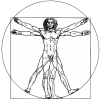In an acute short term danger situation - like a poison gas attack (your example) - you would have to wear the mask ALL THE TIME. Take it off for a couple of minutes to eat and drink, and you are dead.
Respiratory disease outbreaks are complex and evolve over long time scales. There are extremely few people who would be willing to wear a gas mask for months or years on end. Even for those people, when they take the gas mask off to eat - boom - infected. When they take off their gas mask to sleep - boom - infected. When they take off their gas mask because they are going insane from wearing it for months on end - boom - infected.
For those who say South Korea relaxed their mask requirements and that is why they performed so poorly in COVID deaths per million (not proven) - how long do you think they could keep oppressing the population for a disease with an IFR that is a tiny fraction of 1 percent? Remember, China tried that longest. The people were so fed up that they started calling for the ouster of dictator Xi. Literally the next day, the pandemic restrictions were all lifted.
Your inconvenience argument sound disingenuous. Going to the grocery store and occasionally visiting friends is wearing PPE ALL THE TIME? Eating and sleep and most other activities would be done at home where wearing PPE would be unnecessary. Most people are used to wearing masks, and they don't seem to mind that much. If you were a soldier in WWI, would you be complaining about wearing a gas mask? What if the covid death rate was 50% for everyone?
AFAIK, the IFR for the over-65 groups was a lot higher than "a tiny fraction of 1 percent."
It's not surprising that the lower-risk groups got fed up with the never-ending, one-size-fits-all policy. The mistake of the east Asian countries and everyone else was not to target respirator use to high-risk groups. If this had been done, there would have been no need for any other NPI.





























































